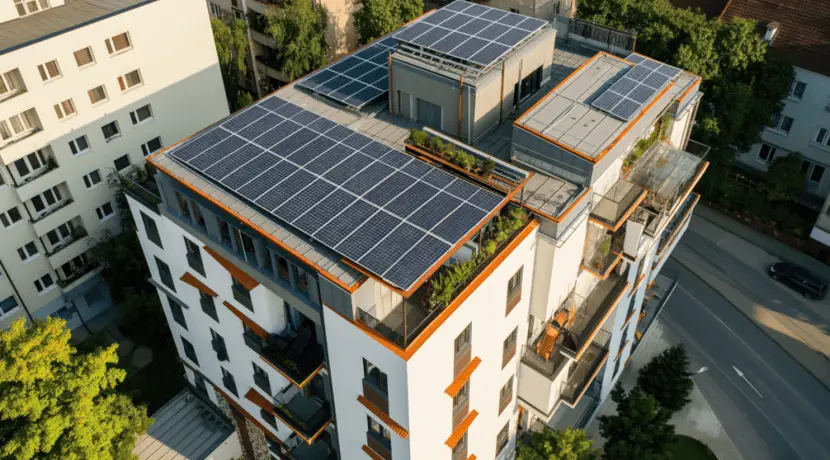Electricity from tenants could supply millions of people in Germany
Untapped potential 03. July 2024 13:44 Robert Klatt There are currently virtually no tenant electricity networks in Germany. An analysis now shows that the tenant electricity model could provide cheap energy to millions of people. Cologne, Germany). The tenant electricity model in Germany stipulates that electricity for tenants is generated in the immediate vicinity and […]

Untapped potential
Robert Klatt
There are currently virtually no tenant electricity networks in Germany. An analysis now shows that the tenant electricity model could provide cheap energy to millions of people.
Cologne, Germany). The tenant electricity model in Germany stipulates that electricity for tenants is generated in the immediate vicinity and does not enter the public electricity grid. Tenants can purchase electricity directly from their landlord and thus save compared to the local base rate. Currently (as of May 2024), the number of tenant electricity systems is still very low, just under 9,000.
Researcher of the Institute of German Economics (IW) has just published a study according to which the tenant electricity model still has great potential. The analysis shows that in recent years, new solar installations have been built mainly on single-family and two-family houses, while hardly any modules have been installed on the roofs of multi-family houses. According to the authors, this is due, among other things, to the fact that the current legal situation means that the interests of tenants and owners often do not coincide.
19 million households renting apartment buildings
According to the IW, 14.3 million of the 19 million tenant households (75.3 percent) could receive tenant electricity if suitable power plants were installed on all 1.9 million buildings. Solar systems could produce around 43 terawatt hours (TWh) of electricity per year. A study by the German Aerospace Center (DLR) recently provided similar data, which recorded the potential of solar systems on all German roofs.
Reform of the tenant electricity model is necessary
However, various problems currently prevent the expansion of the tenant electricity model. According to the study, this model often does not make economic sense, especially in houses with only a few tenants, because tenants cannot be forced to buy electricity from their landlord. In this case, the landlord must feed the electricity into the public electricity grid, which results in significantly lower compensation, making investments in solar systems unprofitable.
Another problem is that the decision-making process of the owners’ associations is often very lengthy and the corresponding systems are only installed with considerable delay. This is also due to the fact that the technical requirements for implementing the tenant electricity model, such as suitable electricity meters, do not yet exist in most existing buildings and require costly conversion work. The researchers therefore explain that the great potential of the tenant electricity model will remain untapped if no reform takes place.














